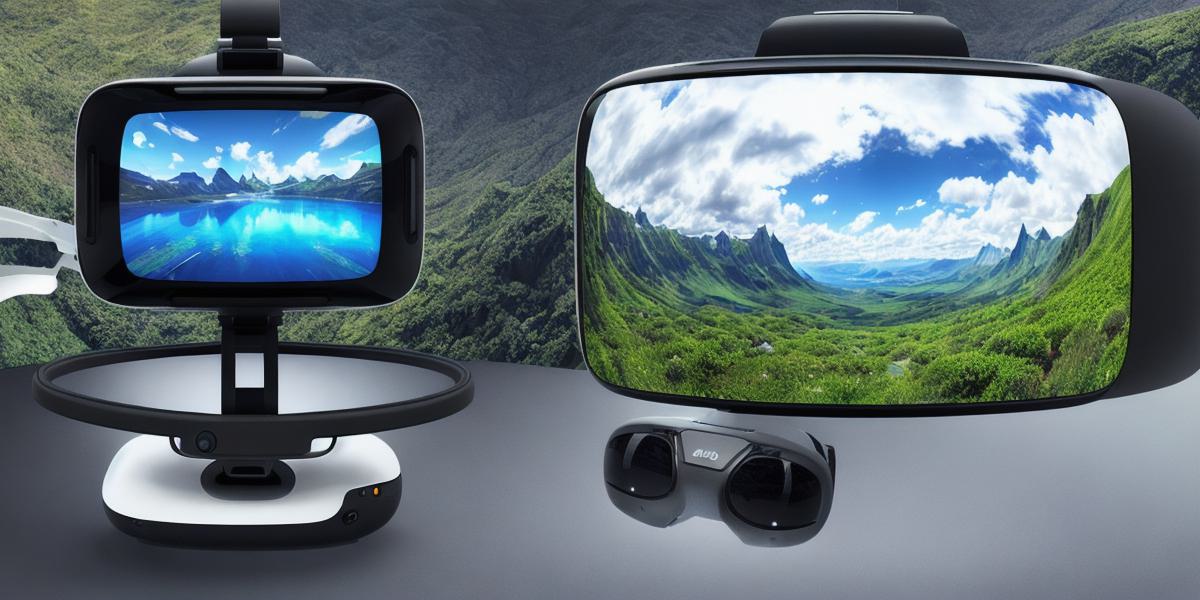As technology continues to advance, virtual reality (VR) is becoming increasingly popular. VR allows users to experience immersive and interactive simulations of real-world environments or entirely fictional worlds. In this article, we will explore the future of VR and its potential impact on various industries.
The Future of Virtual Reality
Virtual reality has already made significant strides in recent years. It is being used for gaming, education, training, and even therapy. As VR technology continues to improve, it is expected to become more accessible and affordable. In fact, according to a report by MarketsandMarkets, the global virtual reality market is expected to reach $341.2 billion by 2025, growing at a CAGR of 47.6% from 2020 to 2025.
Industries Embracing Virtual Reality
One industry that is already embracing VR technology is gaming. With the rise of consoles like the Oculus Quest and PlayStation VR, gamers can now experience immersive and interactive games in ways never before possible. Gaming companies are also using VR for prototyping and testing new game mechanics.
Virtual reality is also being used in education and training. For example, medical students are using VR simulations to practice surgeries without risking patients’ lives. Similarly, pilots can use VR simulations to train for complex flight maneuvers without the need for expensive and time-consuming in-person training.
Virtual reality is also being used in therapy. For example, VR technology can be used to treat anxiety disorders by simulating stressful situations and helping patients learn coping strategies. It can also be used to treat phobias by exposing patients to their fears in a safe and controlled environment.
Case Studies of Virtual Reality in Action
One great example of virtual reality in action is the work being done at the University of California, Los Angeles (UCLA) with VR for autism. UCLA researchers are using VR simulations to help children with autism develop social skills and better understand social cues. The study found that after just four weeks of training, children showed significant improvements in their ability to understand and respond to social situations.
Another example is the use of VR technology by NASA for space exploration. NASA is using VR simulations to train astronauts for missions to the moon and beyond. These simulations allow astronauts to practice complex maneuvers in a safe and controlled environment, reducing the risk of accidents and saving time and money on training.
Expert Opinions
According to Dr. Richard Devine, Chief Medical Officer at VR Medical Center, "Virtual reality has enormous potential for medical treatment. It can be used to treat a wide range of conditions, including PTSD, anxiety disorders, phobias, and chronic pain." He also notes that the use of VR in medicine is still in its early stages, but it has already shown great promise.
Similarly, Dr. Ian Smith, Chief Technology Officer at Oculus, believes that virtual reality will be a major disruptor in various industries. "Virtual reality has already transformed gaming and education, but it has the potential to revolutionize many other areas, from healthcare to manufacturing to entertainment."
Real-Life Examples
One real-life example of the potential of VR technology is the use of virtual reality in tourism. For example, a company called Tourisme Montréal is using VR to allow people to virtually explore the city without ever leaving their homes. This has the potential to revolutionize the way people travel and experience new places.
Another real-life example is the use of VR technology by the military for training purposes. The U.S. Army is using VR simulations to train soldiers for combat situations, allowing them to practice complex maneuvers in a safe and controlled environment.
The Thought-Provoking Ending
Virtual reality is undoubtedly the future of technology. It has already transformed various industries and has the potential to do so much more. As VR technology continues to improve, we can expect to see even more innovative uses for it in the years to come. Whether it’s gaming, education, training, or healthcare, virtual reality will continue to change the way we live our lives.
FAQs
- What is virtual reality?
Virtual reality (VR) is a technology that allows users to experience immersive and interactive simulations of real-world environments or entirely fictional worlds.
- What industries are using virtual reality?
Virtual reality is being used in gaming, education, training, therapy, and many other industries.
- How effective is virtual reality for medical treatment?
Virtual reality has shown great promise for medical treatment, particularly in areas such as PTSD, anxiety disorders, phobias, and chronic pain.
- What are some real-life examples of virtual reality technology?
Some real-life examples include the use of VR technology by Tourisme Montréal to allow people to virtually explore the city and the use of VR technology by the U.S. Army for training purposes.
- What is the future of virtual reality?
The future of virtual reality is undoubtedly bright, with VR technology continuing to improve and be used in a wide range of industries.
